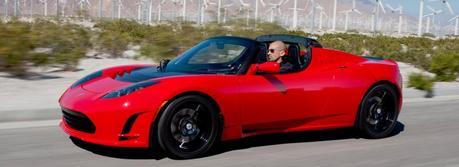
The Tesla Roadster, launched in 2008, has a range of 244 mi (393 km).
A new version of lithium-sulphur battery that could potentially increase the range of electric cars to several hundred kilometers is being developed at the Baosteel-Australia Joint Research and Development Centre based at The University of Queensland (UQ) in Brisbane, Australia.
Using innovative technology, researchers at the Centre aim to produce a composite of sulfur (an electrical insulator), and carbon (a conductor) with excellent stability and energy content to improve high-energy lithium-sulphur batteries.
UQ-based Project Leader Professor Ian Gentle said the technology had the potential to provide the high-energy density storage needed to increase the range of electric vehicles to several hundred kilometres, which would help overcome one of the major barriers to the acceptance of this technology.
“While lithium-ion batteries are widely used in small electronic appliances, they can’t provide the capacity needed for heavy energy users such as cars, which is at least three times greater than that currently available,” he said.
“The widespread use of zero-emission vehicles, when teamed with sustainable energy sources, is an important part of an environmentally-friendly energy strategy, and Baosteel is partnering with UQ to develop advanced materials and technologies that will contribute towards this goal.”
Other potential applications of the research include back-up power for wind and solar power plants, and emergency power for disaster areas.
In March, UQ’s Vice-Chancellor Professor Peter Høj will meet with senior leaders at the Baosteel Corporation in Shanghai this week to reaffirm the valued links between the University and the world’s second-largest steel maker.
Professor Høj said an enduring partnership with Baosteel meant the University had been able to provide technological support through a number of high-quality projects.
“Through this collaboration, and as shown in the new lithium-sulphur batteries, we are making significant advances in research developments and providing solutions to sustainability issues to benefit the community, both locally and internationally,” he said.
“We are committed to finding new ways to drive the growth of clean energy and bringing cheaper, cleaner power to the world.”
Zhou, G., Wang, D., Li, F., Hou, P., Yin, L., Liu, C., Lu, G., Gentle, I., & Cheng, H. (2012). A flexible nanostructured sulphur–carbon nanotube cathode with high rate performance for Li-S batteries Energy & Environmental Science, 5 (10) DOI: 10.1039/c2ee22294a
